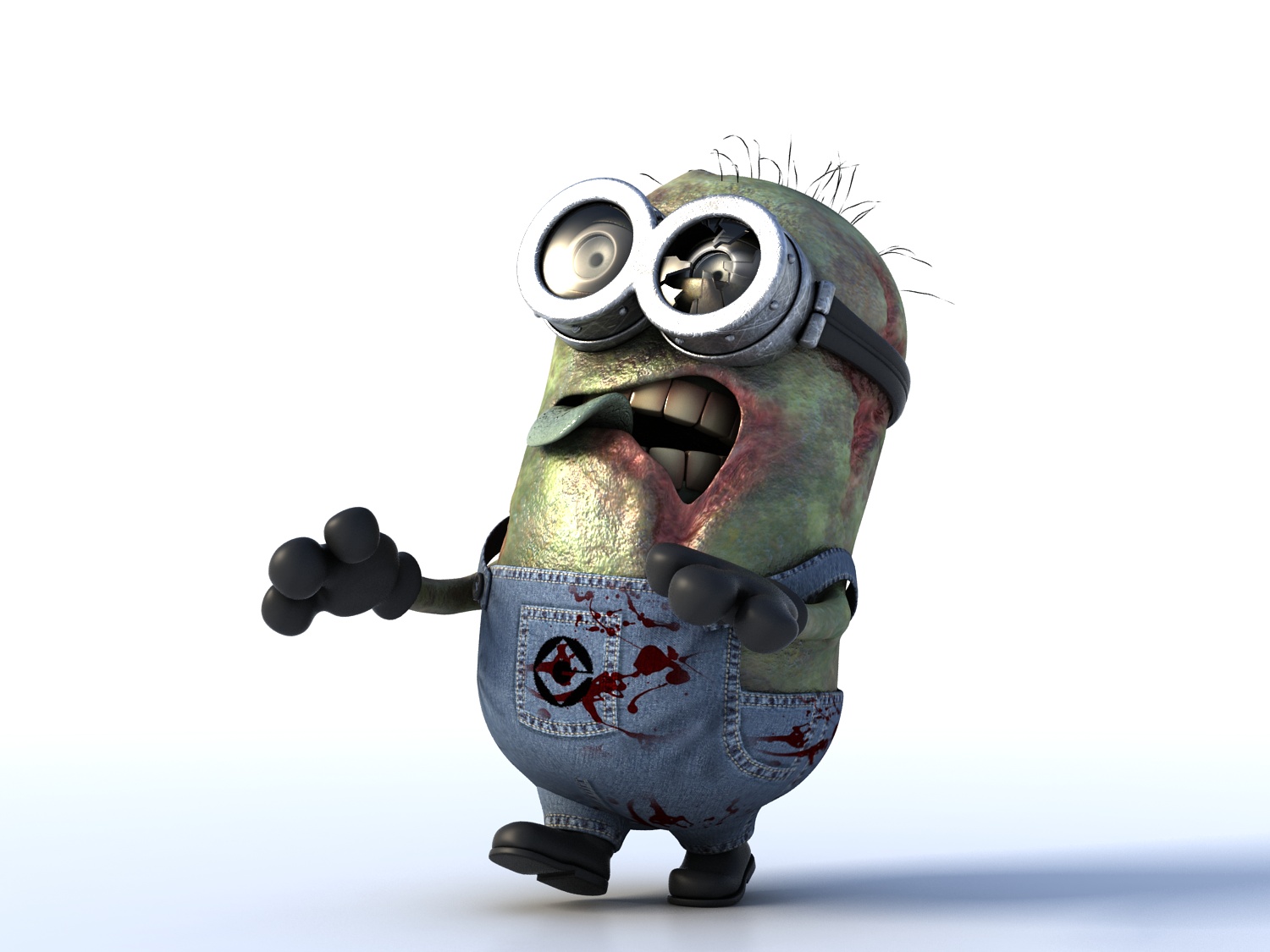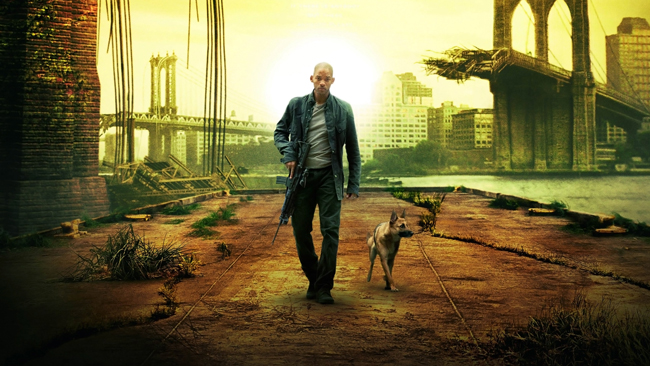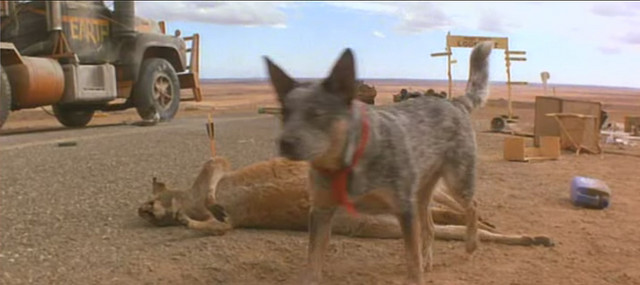— Less World to be Ourselves: A Note on Postapocalyptic Simplification

While ecological catastrophe weighs as heavy as it ever has on the popular imaginary, it is notable that the majority of postapocalyptic tales do not feature disasters of the ecological variety.1There are of course past examples such as Soylent Green, Phase IV, Silent Running, and Demon Seed, to name a few. However, these movies tend to use the ecological crisis as a means of reinforcing conservative concepts of love, family, and tradition. In the following I argue that this focus stems from two interconnected problems. The first is that postapocalyptic narratives conflate the concept of a human-centered world and a biologically sustaining Earth. The second problem is a general lack of a concept of futurity, of any sense of a future that is not totalitarian and/or structurally disastrous. These problems are not only found in postapocalyptic fiction, of course, but are endemic to contemporary thought about what the world can possibly be.
To return to postapocalyptica, the imagined causes of the end are fairly evenly divided between biological threat (zombie or otherwise) and traditional or nuclear war (with human or alien combatants). One reason for these tropes is no doubt narratological—it is hard to make the environment as such the culprit, since that would mean that everyone, or no one, is to blame.2M. Night Shyamalan’s 2008 film The Happening is a rare exception. In biological or military scenarios there remains a familiar and identifiable power structure with which to highlight human foibles. At the start of the disaster, this ranges from demonstrating the usual hubris of “playing god” and “tinkering with nature,” or regular human pettiness brought to global scale (greed and fears of various kind lead to devastating conflicts). But in either case, when there is a zombie apocalypse, no one doubts that zombies exist.
Postapocalyptic scenarios are believable ways of creating fictional worlds that are selectively parasitic on our contemporary world, as well as importing, with great discretion, science-fictive, fantasy, or horror elements.3All created worlds are more or less parasitic on our collective conception of the “real world.” Postapocalyptic narratives treat the real world as a background to be tested against the injection of a singular fictional element—that of the form of the apocalypse. This is quite apparent as the genre allows for the past world to be as “erased” as the world-builder desires, while, at the same time, giving the world-builder the freedom to mythologize those past relics either wholly or partially buried in time. The genre is thus past-directed, but in a way that builds a near-future from a freely recombined past. The very form of postapocalyptic tales denies any imagination of a future that is not an elaborate junkyard of the past and near-future. This is telling with regards to our communal self-reflections on the current relationship between politics and technology. The combined effect of the (often) technological cause and the selective erasure of the present-as-past is that the present is inevitability doomed while able to be selectively resurrected. This allows an odd combination of preparatory eschatology and a total removal from the political or environmental present.

Thus, while the postapocalyptic frame allows for potentially revolutionary experiments in genre recombination, it often exhibits conservative microcosms of social and political fantasies. The genre exhibits the basic sociopolitical fantasies of the West regarding the question as to whether humans are animals that require control or whether control turns humans into animals. By referring to the particularities of the present, postapocalyptic fictions serve to entertain left- and right-wing fantasies about escaping contemporary life in their relative forms—both the conservative desire to start over in order to keep things simple or traditional and a prevalent leftist fantasy of escaping the contemporary technologically mediated world and going “back to nature” or some other form of “authentic” existence. Or, put otherwise, postapocalyptica indirectly closes the ideological gap between eschatological Christian doomsayers and anarcho-primitivist radicals.
In reducing the complexity of the world through disaster, postapocalyptic fiction suspends and replaces contemporary political concerns with an emphasis on self-reliance, survival, and a more generalized sense of order versus chaos. Since the structure of the world is gone, or mostly gone, the stability of the world rests on the exceptional behaviors of the few. While this sort of hero structure is generic enough to present itself in multiple genres, in a postapocalyptic world it exists only because the previously existing world no longer is “in its way.”4It is following this emphasis on the chosen few that I am skeptical of the rageful yet comedic approach towards apocalypse in Evan Calder Williams’s Combined and Uneven Apocalypse (London: Zer0 Books, 2011). This may in part explain the unbearable whiteness (and maleness) of many postapocalyptic narratives.

Regardless of where on the traditional political spectrum one relates the proper escape route, postapocalyptic scenarios suggest that destroying the majority of the system would allow for better sociopolitical existence.5See, for example, Dylan Evans, “I Quit My Job to Set Up a Post-Apocalyptic Commune,” The Guardian, January 31, 2015 → The form of the destruction is less and less important, while what humans are at the core becomes more and more the focus. Survivalism, separatism, the greening of capitalism, and so forth guarantee the easy passage from postapocalyptic media to shallow ideological manifestations of escapist fantasies. In preparing for formless potential catastrophes, even less-than-likely ones such as a zombie apocalypse, political and social frustrations can be reduced to the level of the family, the tribe, or the band, despite the enormity of the world.
Therefore, even with their tattered and genre-mixing aesthetics, postapocalyptic fictions of various kinds function as world-simplification devices. This simplicity is not only the narrative simplicity of injecting a fictional element into a story and guessing at how the “real world” would respond to it, but in the removal of the political and ethical questions that collectively tax us, their replacement with more basic tribal concerns of us versus them.6See, for example, Scott Meslow, “The Post-Apocalyptic Morality of The Walking Dead,” The Atlantic, March 5, 2012 → In this regard, postapocalyptic fiction is often treated as an ethical or moral laboratory, often de-emphasizing the narratological choices of editing out the world that existed before.

To return to the general absence of ecological threats in postapocalyptic scenarios, one aspect of the implicit logic in these narratives is that of the equation of Earth and world. World is a human-centered notion of the global system, as opposed to either the Earth as a habitable place in terms of biosphere and climate, or of the Earth as a planet in the universe. Thus the end of the world means the end of civilization, or at least modern civilization. Again, the postapocalyptic genre is a very particular kind of reduction, a creatively and intentionally imprecise reduction of the world to present a bent—but still circular—model of history, a notion of eternal return that recycles with poorer and poorer efficiency.
Whereas Evan Calder Williams emphasizes apocalypse’s function to expose the unseen, at what world-cost does this occur?7Williams, Combined and Uneven Apocalypse, 6. On the face of it this may seem a silly question—it costs the whole world, or a fictional copy of the real world.
If postapocalyptic texts may have in the past worked to expose unseen, if not unfelt, tensions in postindustrial capitalist society, now it would seem that, more and more, they function according to that society’s own logics of individualistic fantasy enacted via the destruction and/or reduction of the world. The sheer number of postapocalyptic tales leaves a strange message: give us more worlds that imagine less world, because there is too much world now.
×
Addendum
An extensive but no doubt incomplete list of current or recent postapocalyptic films and television series. This survey is limited to the last fifteen years only.
Television Series
12 Monkeys
Walking Dead
The Last Man on Earth
The 100
Jericho
Dominion
Falling Skies
Revolution
The Last Ship
Defiance
Z Nation
Left Behind
Films
Planet of the Apes
Dawn of the Planet of the Apes
Rise of the Planet of the Apes
Mad Max
Hunger Games
Another Earth
Oblivion
28 Days Later
28 Weeks Later
Resident Evil: Afterlife
Resident Evil: Retribution
Stakeland
Wall-E
The Book of Eli
I am Legend
The Rover
World War Z
The Signal
The Darkest Hour
The Dark Hour
The Day After Tomorrow
Daybreakers
Land of the Dead
Snowpiercer
Terminator 3
Terminator: Salvation


